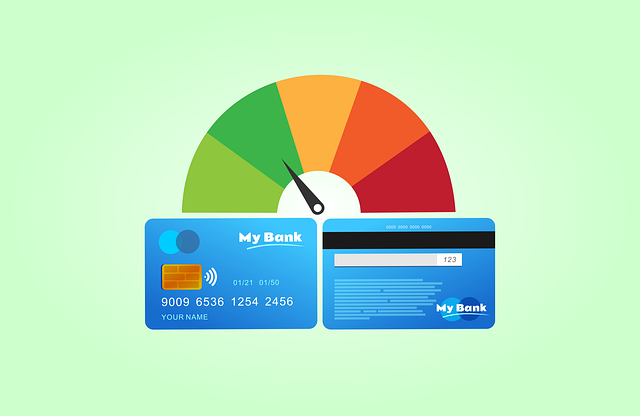Credit scores are vital for gaining access to funding with favorable terms. They are influenced by payment history, debt levels, credit age, new credit inquiries, and credit mix. Monitoring and improving these scores through timely payments, error disputes, responsible borrowing, and budgeting apps can lead to better loan rates and conditions. For low scorers, strategic financial behavior and leveraging positive history enhance reliability to lenders, opening doors to competitive funding options. Regular credit report checks are essential for tracking progress and securing optimal funding based on individual creditworthiness.
Evaluating credit scores is a crucial step in securing optimal funding options. Understanding how these scores influence your access to loans and interest rates is essential for financial success. This article guides you through the process, starting with the fundamentals of credit scoring and its significance. We explore factors impacting your score, providing strategies to improve it. Additionally, we delve into the substantial effect of credit scores on loan types and rates, offering techniques for effective monitoring and leveraging these scores to secure the best funding opportunities, even with low credit ratings.
- Understanding Credit Scores: The Basics and Their Significance
- Factors Influencing Your Credit Score: What You Need to Know
- Improving Credit Scores: Strategies for Enhanced Financial Health
- The Impact of Credit Scores on Loan Options and Rates
- Monitoring and Leveraging Your Credit: Effective Management Techniques for Funding Success
Understanding Credit Scores: The Basics and Their Significance

Credit scores are a numerical representation of an individual’s or business’s creditworthiness, based on their borrowing and repayment history. They play a pivotal role in shaping access to funding options, including loans, mortgages, and even rental agreements. Understanding the fundamentals of credit scores is essential for anyone seeking financial opportunities.
A good credit score reflects responsible financial behavior, such as timely bill payments, low debt utilization, and a mix of different types of credit. This positive history increases the likelihood of securing funding at favorable terms. Conversely, low credit scores often result in higher interest rates, stricter lending criteria, or even denial of loan applications. Therefore, monitoring and improving credit scores can significantly impact the ease and cost of accessing funding for various ventures.
Factors Influencing Your Credit Score: What You Need to Know

Your credit score is a crucial factor in determining your access to and terms for various funding options like loans or credit cards. Several key factors influence this numerical representation of your financial trustworthiness: payment history (35%), amounts owed (30%), length of credit history (15%), new credit (10%), and types of credit used (10%).
Understanding these components is vital for anyone seeking funding. For instance, a strong payment history demonstrates responsible borrowing habits, while keeping credit utilization low (the amount of available credit you’re using) can positively impact your score. Regularly monitoring your credit scores allows you to track progress in improving them and leverages this information when negotiating better loan terms or exploring funding opportunities with more favorable rates.
Improving Credit Scores: Strategies for Enhanced Financial Health

Improving your credit scores can significantly enhance your access to various funding options and the terms offered on loans. It’s a crucial step towards achieving better financial health and security. One effective strategy is regular monitoring of your credit reports from the major credit bureaus, as this allows you to identify any errors or discrepancies that may be negatively impacting your score. Disputing inaccurate information can help restore your creditworthiness.
Additionally, making timely payments on all bills, including credit cards and loans, is a powerful way to improve your credit scores. Building a history of responsible borrowing and repayment demonstrates to lenders that you’re a reliable borrower. Leverage tools like budgeting apps or automated payment reminders to ensure on-time payments, which can gradually raise your credit score over time and open doors for better access to funding options in the future, especially for individuals with low credit scores seeking affordable loans.
The Impact of Credit Scores on Loan Options and Rates

Credit scores play a pivotal role in shaping an individual’s access to various funding options and the terms associated with them. Lenders and financial institutions heavily rely on credit scores as a key indicator of an applicant’s financial reliability and risk profile. A strong credit score can open doors to more favorable loan conditions, including lower interest rates, flexible repayment terms, and increased borrowing limits. On the contrary, low credit scores may result in higher interest rates, stricter lending criteria, and limited funding choices.
When evaluating credit scores for funding, it’s essential to understand that lenders often use credit scoring models to quickly assess an applicant’s financial health. Improved credit scores can be achieved through consistent and responsible financial behavior, such as making timely payments, maintaining low debt levels, and regularly monitoring credit reports for errors or signs of fraudulent activity. By leveraging their credit scores, individuals with low credit scores can still access funding options but may need to explore alternative lenders or consider specific programs designed to cater to those with less-than-perfect credit. Monitoring credit scores is a proactive step that allows individuals to identify areas for improvement and make necessary adjustments to secure better loan options.
Monitoring and Leveraging Your Credit: Effective Management Techniques for Funding Success

Monitoring and managing your credit scores is a vital step in securing the best funding options. Regularly checking your credit reports from major credit bureaus allows you to track changes and identify any errors or fraudulent activity. This proactive approach enables individuals to take prompt action, ensuring their credit profiles are accurate and reflecting their financial standing. By monitoring, you can quickly address issues like identity theft or disputed information, both of which significantly impact your credit scores.
Leveraging your credit scores involves using them strategically to access funding. Lenders often consider credit scores when evaluating loan applications, so maintaining and improving these scores can open doors to better interest rates and terms. For individuals with low credit scores, it’s essential to focus on responsible financial behavior, such as making timely payments, keeping credit card balances low, and diversifying credit types. These techniques contribute to a positive credit history, demonstrating reliability to lenders and increasing the likelihood of securing funding at competitive rates.






